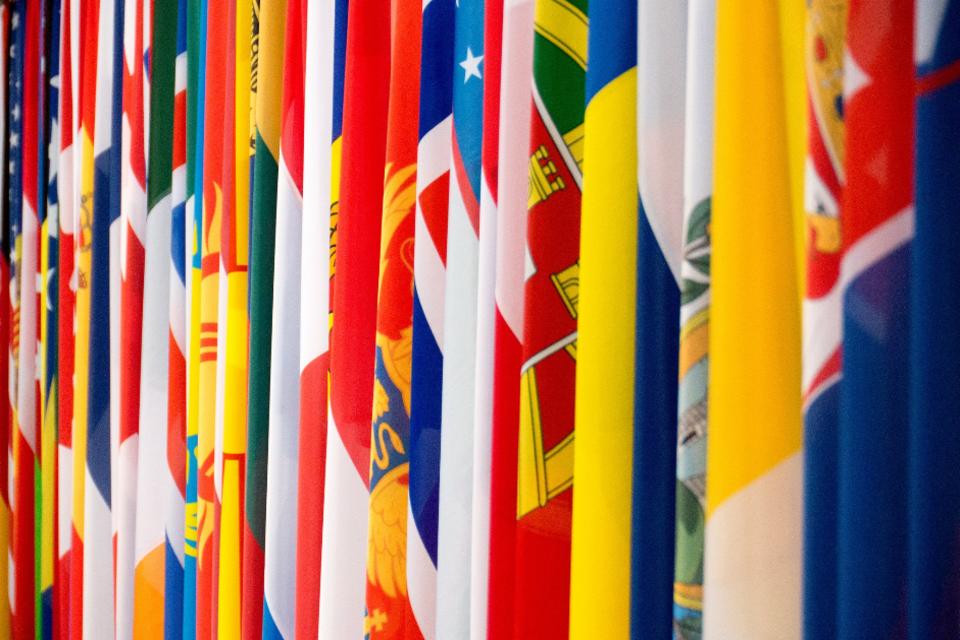
Thank you Madam Chair. This statement is delivered on behalf of the UK and Canada. We’d particularly like to thank Ms Zakharova, Mr Lecoq and Ambassador Zanier for sharing their insights with us. It is always helpful to hear about experience in other international organisations, from parliamentarians and from civil society practitioners on the ground.
This session is particularly timely as we mark the 10th anniversary of MC Decision 3.11. The UK and Canada highly value the tools provided by the OSCE institutions, the Conflict Prevention Centre and field missions on early warning, early action, conflict resolution and conflict prevention.
We recognise the importance of Early Warning and Early Action in preventing conflict escalation and in saving lives. The UN and World Bank have estimated that a scaled-up international system for preventative action could also save up to $70bn per year. And we have some excellent tools existing in the OSCE – such as the Early Warning Focal Point network, the OSCE Situation Room and the relevant mandates of the OSCE institutions, Secretary General and Field Missions.
Supporting the successful resolution of violent conflict is a priority for the UK and Canada, and mediation is core to this support. Whether for preventing, resolving or transitioning a conflict towards greater stability, mediation is the engine that drives a successful peace process. We highly value the work of the OSCE’s mediators and special representatives, as well as the support provided to them by the Conflict Prevention Centre’s Mediation Support Team.
We also greatly appreciate the OSCE’s contributions towards post-conflict reconciliation and building sustainable peace. The OSCE is built on the foundation of comprehensive security, a recognition that there are a multitude of intersecting factors that promote the prosperity and security of States and regions be they military transparency, human rights, security sector reform, rule of law, or anti-corruption efforts, to name just a few. The OSCE’s network of field operations, ably supported by the Conflict Prevention Centre, and the OSCE Autonomous Institutions play a vital role in assisting participating States in implementing their OSCE commitments, and thus building sustainable peace.
We support efforts to strengthen these tools further. However, we recognise that all this support and all these resources, can only be as effective as we, the participating States, allow them to be. We must all demonstrate the political will to use these resources and to fully implement the OSCE principles and commitments that underpin comprehensive security for all our citizens.
Another important task for all of us is to ensure that gender analysis is included throughout the conflict cycle, and that we mainstream a gender perspective into all conflict prevention and resolution efforts. We know that a better understanding and response to the needs of different genders contributes to more sustainable peace. In this respect, we very much encourage the Organisation and participating States to implement the recommendations in the excellent OSCE Toolkit on Women and Effective Peace Processes, and to ensure the full, equal and meaningful participation of women at all stages of peace processes and at all levels of decision-making.
Peace processes are complex and multifaceted. They stretch from the pre-negotiation stage all the way through to the transition out of conflict, the implementation of a peace agreement and mandated transition and reconciliation processes. They encompass formal “track 1” aspects and informal “track 2 and 3” elements, such as civil society or grassroots engagement and advocacy.
Research has indicated and identified the need to create better links between track 3 and track 1 peace processes, in order to ensure that inclusivity and the role of women in particular is mainstreamed in a comprehensive way. Women’s roles in the informal space of peace process, must be recognised and valued, while at the same time ensuring that the formal aspects of peace processes become an enabling environment for women’s meaningful (not tokenistic) participation, inclusion and representation.
Sadly, women involved in peace processes also often face risks and threats to their safety and security including through gender-based violence and abuse. The Protection Framework for Women Peacebuilders that was developed by the International Civil Action Network (ICAN) contains guidance on how to provide much needed protection. This framework was developed through conversations with women peacebuilders about their experiences and needs. By supporting and following this guidance we can help protect women peacebuilders to continue their work without threats or violence. Through their safe and active participation, we can help lay the groundwork for more sustainable peace
In conclusion, we would like to stress the importance of political will again. In many cases, we have the tools we need for building sustainable peace. What we require is the political will to strengthen these tools, and critically, to use them.
Thank you Madam Moderator.